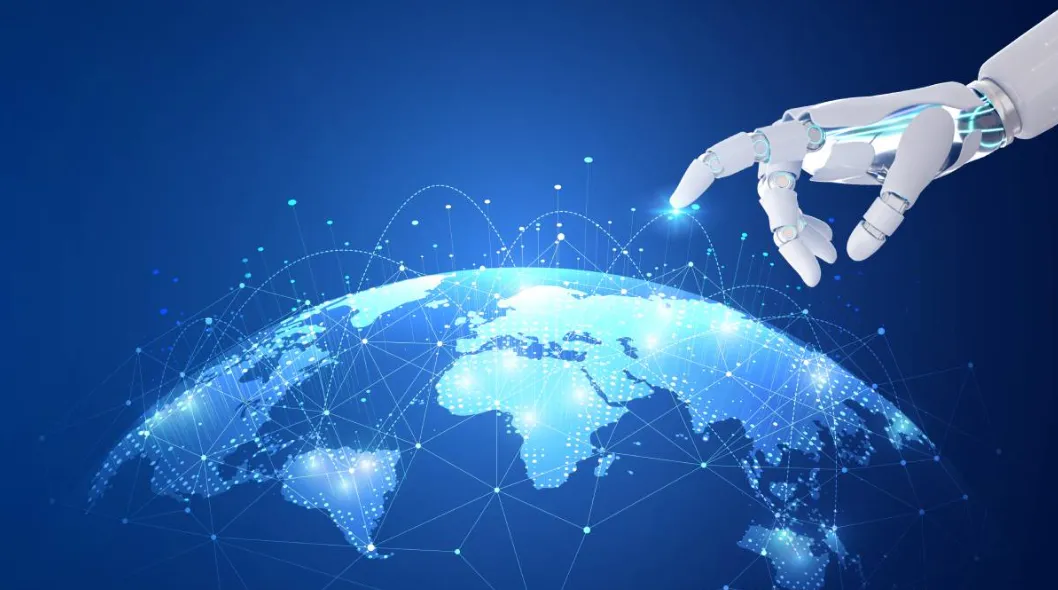TON and artificial intelligence: how Blockchain supports AI development
Introduction:
Artificial intelligence continues to transform industries through predictive analytics, natural language processing, and autonomous decision-making. Yet, the integrity and security of AI-driven processes can be compromised without a dependable framework to manage computational resources. Blockchain technology offers such an infrastructure, providing immutability, decentralized oversight, and verifiable data records.
The relationship between artificial intelligence and Blockchain technologies
AI thrives on large, high-quality datasets and rigorous algorithmic processes. However, handling these datasets securely demands an ecosystem that prevents malicious tampering and upholds transparency. Blockchain meets this need by distributing data storage and verification across numerous nodes, forming a tamper-resistant environment. This distribution embodies Decentralization in AI platforms, allowing stakeholders to verify algorithmic outputs independently. Such verification not only improves trust but also drives collective contributions, enabling continuous enhancements to AI models without compromising data integrity or privacy.

How TON supports AI development
An essential factor in AI’s advancement is efficient data exchange, which must be both scalable and secure. TON stands out by offering solutions that handle large volumes of transactions per second, ensuring high throughput and quick confirmation times. A major advantage lies in TON in data sharing for AI models, where distributed ledgers record transactions reliably, and sharding mechanisms streamline network operations for faster data processing. As a result, AI practitioners can readily access real-time insights, feed them into their algorithms, and refine their models with minimal latency—ultimately leading to more robust, accurate outcomes.
Key benefits of Blockchain for AI development:
Blockchain’s distributed nature promotes collaboration while safeguarding proprietary assets and personal data. Leveraging Blockchain for AI solutions leads to efficient resource sharing, transparent record-keeping, and automated contract execution. These features minimize the risk of data mismanagement, ensuring that algorithms access validated and accurate information for training or predictive tasks. Furthermore, blockchain-based networks can incentivize data contributors with tokens, enhancing user engagement and fostering a global ecosystem of AI collaborators. This collective approach not only democratizes AI development but also drives faster innovation cycles.
Transparency, security and data protection for ai
Given the increasing reliance on machine learning across healthcare, finance, and critical infrastructure, safeguarding AI processes is paramount. Systems built on TON, complemented by Security in AI with blockchain, mitigate risks by creating immutable ledgers of AI activity. This immutability means that any attempted manipulation of stored data becomes evident to all participants. Additionally, blockchain-based consensus mechanisms confirm data authenticity, ensuring that neural networks receive only verified inputs. Coupled with cryptographic protocols, this transparency fortifies user trust in AI applications, encouraging broader adoption across a range of sensitive domains.
TON’s role in ethical AI
Ethical AI calls for responsible data usage, fair algorithmic design, and unbiased decision-making. By embracing TON’s role in ethical AI development, developers can implement fair governance structures that avoid centralized control and single points of failure. This decentralization enforces accountability and provides an avenue for stakeholders to validate both data sources and model outputs. Furthermore, the traceability inherent in Blockchain ensures that any biases within AI can be audited and addressed promptly, fostering equitable AI solutions that respect user rights and societal norms.
How Decentralization helps in creating ethical AI
When data is stored and verified through multiple nodes, the system’s resilience against manipulation increases. This design underpins TON and AI integration, a pathway that makes algorithmic decisions transparent and easily scrutinized. By distributing governance, no single authority can impose biased outcomes or tamper with training datasets unchecked. This collective oversight serves as a guardrail against unethical practices, leading to more equitable AI services. Additionally, decentralized consensus protocols create trust among participants, motivating larger communities to contribute their data responsibly, shaping AI models that genuinely benefit users worldwide.
Smart contracts and AI automation
Smart contracts execute pre-coded rules automatically when network conditions are met. This mechanism complements AI models, allowing them to rely on autonomous triggers for data processing and results validation. Within the TON ecosystem, Smart contracts for AI automation streamline workflows by removing intermediaries and manual oversight. By embedding logic directly into the blockchain, contracts ensure that model outputs are evaluated without delays or human errors. This level of automation reduces operational costs and fosters a self-sustaining AI environment where scalability and rapid deployment become the norm.

Using Smart contracts to automate AI Processe
The automation of AI tasks goes beyond simple triggers and responses. Smart contracts enable comprehensive, end-to-end orchestration of model training, data validation, and even the allocation of rewards to data providers. In a TON-based network, this orchestration is reinforced by the blockchain’s immutable record, preventing dishonest activity or double claims of work. Automated approvals and transparent ownership logs inspire confidence in participants, encouraging broad-based collaborations. Consequently, these collaborations accelerate innovation by enabling global talents to work on AI projects without concerns about unfair compensation or unauthorized data use.
Conclusion
The fusion of AI and Blockchain is more than a buzzworthy trend; it is a foundational leap toward secure, efficient, and equitable technological solutions. TON contributes to this paradigm by boosting performance and lowering barriers to entry for innovators worldwide. Its high scalability, coupled with transparent governance, ensures that AI-driven processes remain trustworthy and accessible. As industries increasingly adopt AI, reliable infrastructure remains pivotal, and Blockchain serves as a protective and enabling layer. By ensuring data integrity and powering automated collaborations, TON paves the way for an AI ecosystem that is open, fair, and robust.
The future of Blockchain and AI integration with TON
Looking ahead, ongoing research and development will unlock new frontiers where TON’s high throughput and decentralized governance will seamlessly merge with AI algorithms. This marriage underscores the Future of AI and Blockchain synergy, hinting at a world where even the most complex machine learning tasks are enhanced by distributed, tamper-proof systems. As the global community continues to build advanced apps, TON’s flexible architecture will remain a strong pillar, capable of supporting multifaceted AI functionalities at scale. Together, these technologies offer unprecedented opportunities to shape a future defined by ethical, transparent, and relentlessly innovative AI solutions.